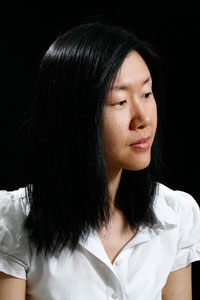I wasn't surprised to hear anti-government protesters vow to escalate their rallies into the next year.
It's been five months since Thailand has been swept by a series of protests led by students and young people who are demanding the ouster of Prime Minister Prayut Chan-o-cha, constitutional amendments, and reformation of the monarchy.
So far, there have been no signs of success for any of their demands. The prime minister vows to continue his work, the road to a charter amendment is still a long one, and an increasing number of royalists are ready to come out and confront protesters over the monarchy.
Ever since Panusaya Sithijirawattanakul, a protest co-leader and student at Thammasat University, made an outrageous speech about the 10-point manifesto against the monarchy three months ago, we have witnessed more cases of aggressive and intimidating acts, not to mention foul language, against the royal institution both in their rallies and social media.
They don't only challenge the institution but also accuse the monarchy of constantly interfering in political affairs and the legal system, and have called for transparency regarding the King's finances.
It's no secret that their hostile sentiments are influenced by a certain group of people who are well-known for defaming the monarchy and spreading misinformation with baseless facts on social media.
However, Panusaya, who has spearheaded the cause for protesters with misleading assumptions about the King's financial actions and royal budget, was left at a loss for words in a debate over the Crown Property Regulations Act a few weeks ago.
For an hour, she was confronted by the knowledgeable professor, Dr Arnond Sakworawich from the National Institute Development Administration, who provided insight into the Act and intensively lectured her about the management of the King's personal property, crown property and also his personal finances.
The debate became the talk of the town and it clearly shows that solid knowledge is the best tool to correct delusions on this matter.
In a similar incident, Parit Chiwarak, another firebrand of the student-led protests who often makes harsh remarks about the monarchy, caused a new uproar when he posted an outlandish statement on Twitter on the same day the debate took place.
He wrote that King Rama VII once tried to sell the Emerald Buddha after he abdicated his throne and insisted that people must take control of the Crown Property Bureau to make sure our treasures and money remain protected.
Of course, he was criticised for such allegations which were later proven to be wrong. His claims were the result of a baseless story in The New York Times published 85 years ago.
It's very sad and unwise that these young protesters are slandering our revered institution by using false claims without verifying facts first.
Worst yet, another case that I think must be addressed relates to Attapol Buapat, another key leader who has blamed Buddhism as an obstacle in their fight for democracy and equality and went as far as calling for religious reform.
He told the rally that "only after we separate religion from the state can we truly reform the country. Religion has infiltrated our education system, media and politics. It is religion that tells us to give up and that the royals are chao and we are phrai [commoners]. The state must stop using religion as propaganda".
Just like other religions, Buddhism teaches us to be good. It plays a vital role in helping us refine ourselves since Buddha taught us to see through greed, hatred and delusion which, in most cases, are the driving forces of our actions.
Buddhism doesn't tell us to be a loser but instead to believe in the law of karma under which everyone is equally bound to pay for what they have done. It also teaches us to have shame and fear evil so that we do not hurt anyone -- physically or verbally.
Principally, Buddhism aims to guide us to live a virtuous life and use our wisdom to judge what is right and wrong. At the same time, it shows us the path to spiritual cultivation, which is a stepping stone to enlightenment.
We can't deny that our society has had peace until this day because of Buddhism and that is why it is one of the three pillars that unites the country.
I think that if reforms were to take place, they should focus on how to come up with a better way of educating our children so they understand this principle of faith.
If that was to happen, I believe we would hear less offensive languages on the protest stage.
Patcharawalai Sanyanusin is a writer for Life section of The Bangkok Post.
